This is more of a discussion piece than an educational paper. However, I believe to be important to address potentially faulty thinking and challenge inaccurate beliefs, and so I beg indulgence whilst I discuss a few firmly held but erroneous ideals, in order to allow us to think more deeply about what is important in Masonry.
Innovation and Stagnation in Masonry
Rt.Ven.Bro. Matt DA Fletcher KGC – Secretary, Peace Council No.224
The Ancient Charges of Masonry according to Preston state that a Master-Elect must accept and agree the following: ‘You admit that it is not in the power of any Man or Body of Men to make any Alteration or Innovation in the Body of Masonry’ [1] [2]. Mackey stated ‘The first great duty, not only of every lodge, but of every Mason, is to see that the landmarks of the Order shall never be impaired’ [3].
This is a very commonly held belief in Masonry; that nothing can be changed. It is a cause for dissent in lodges, and the root of many arguments between masons, both in lodge and the festive board, or increasingly, on the internet.
We all grow up in a particular masonic environment and are taught that what and we do our work is traditionally the only right way to do it.
I recall once seeing a visiting Past Master correct a sitting Master on a point of protocol in open lodge, different in each other’s lodges. That discussion did not do anything for either brother, and more especially cast a cloud over the remainder of the meeting.

IMAGE CREDIT: the square magazine digital collection
Why then do we insist on our own interpretation of the Masonry we have been taught, and demand compliance with it, rather than understand and accept that there are more variations than similarities in a lot of what goes on in a lodge room?
Social media permits us to associate with many brethren from even more jurisdictions than we can conceive, both regular and irregular (according to strict definitions), and realise that there is a great variation in ritual and occasional practice.
The variation between obligations and rituals from jurisdiction to jurisdiction are almost infinite. What is held dear within one may not be contemplated within another. It is interesting to see how rigid some individuals are on the subject, without understanding that all they know is in fact part of an evolving concept [4].
The rigidity of belief that a single ritual and expression of Masonry appears to come from the early Grand Lodges in the United States in the mid-1800s [5].
There is a strong undercurrent within North American Masonry that we need to return to the original ideals and motives that actuated our forebears, and get away from the assumptions and social conventions that have crept in over the last 3 centuries of Freemasonry [6]; for example, such as not permitting Entered Apprentices to be full voting members of a masonic lodge (a practice never accepted by the United Grand Lodge of England), unilaterally decided at the Baltimore Masonic Convention in 1843 [7].
What many Masons do not realise is that Masonry is an evolving philosophy and society. It is given to us in the strongest terms that masonry is a Progressive Science.
Progressive means ‘to move forward or to evolve’ [8]. This concept demands change… without it, there is no progress, only stagnation.

IMAGE CREDIT: the square magazine digital collection
Charles Darwin wrote ‘It is not the strongest of the species that survive, nor the most intelligent, but the one most responsive to change.’ This is a salutary reflection, as we are faced with a decline in the numbers of new candidates, and we struggle to deal with the loss of interest and participation of our members.
There is a fundamental difference between supporting and championing the core values of what brought masonry into existence and the concepts that truly actuate it; and defending assumed traditions and regional practices that are not critical to the interpretation of the underlying philosophy [9].
Many Masons are unaware of how recent our concept of Masonry actually is. For example, in 1717 there were only two degrees, that of Entered Apprentice and Fellow of the Craft[10].
The Master Mason degree, and the Hiramic Legend did not enter the body of Masonry until the period 1723-30 [11] [12] [13].
The first 3rd degree appears to have been conferred in 1724, and the first mention of the Three Ruffians in the Constitutions of 1738 [14]. The rituals of Masonry were progressively built upon and expanded well into the first part of the 19th Century.

IMAGE CREDIT: the square magazine digital collection
The Royal Arch, justly designated the completion of a Master Mason did not come into existence until approximately 1730 [15].
We are dealing with relatively modern history here. The Shrine did not come into existence until 1872 [16]. Less than 150 years old! The Royal and Select Master series of degrees did not appear until the latter part of the 19th Century [17].
The 18th Century was a period of great change and innovation in Masonry; many things came into existence that had not heretofore been used; concepts such as the use of the Letter G are prime examples [18].
The letter G is not usually displaced in the lodgeroom, nor in the centre of the Square and Compasses in many jurisdictions.

IMAGE CREDIT: the square magazine digital collection
Original Masonic aprons followed a significantly different format to those which we current wear; with a longer fall and rounded corners. Is this not an innovation in Masonry? [19]
The simple fact that we now admit as Masons men with disabilities is against the original landmarks of Masonry. Society has evolved and advanced, we have become more enlightened, and have recognised that social standing and physical disability are not valid reasons to exclude a prospective candidate who is otherwise worthy.
There are many arguments regarding the continued exclusion of women from Masonry, and indeed female Masonic obediences have developed over the last 150 years, not to mention co-ed orders [20].
Whilst not recognised, more progressive Grand Lodges have at least publicly and openly stated that they are regular in their practices. Interestingly, the first female Freemason documented, Elizabeth Aldworth, was regularly initiated in c1711, long before the first Grand Lodge in North America was established in Virginia in 1778 [21].
Under the United Grand Lodge of England, of which I am a member, it is prohibited to outwardly display evidence of my membership of Masonry, nor to advertise that fact by framing my certificate, let alone wear a masonic ring or display the Square and Compasses on anything I wear or drive.
However, this is de rigeur in North America. In the UK I can approach someone I believe would make a good Mason, although that is frequently prohibited in North America.
These are all adopted customs based on our own collective interpretations of what our respective Jurisdictions’ ritual or rules teach us.
And yet, we do not focus on these historical facts, because what we see, what we do, and what we believe in are important to us.
In the end, that may be all that realistically matters. However, to make the claim that what we do has come down to us unaltered, unadulterated, and free of innovation is patently false.
We should learn to embrace our diversity, and recognise that this is what makes us stronger and truly descended from time immemorial.
Every Mason globally has evolved according to a slightly different path and pedigree, and who is any one individual or Jurisdiction to state that they are right and all else is wrong?

IMAGE CREDIT: the square magazine digital collection
Thus, should we continue to adhere to what we perceive to be our own form of unchangeable Masonry, or should we rather recognise that Masonry has been continuously evolving over the last 300 years, and recognise that in order for the movement to continue to be of the greatest benefit to mankind that we recognise that only certain facets are immutable in the society that we hold so dear?
Footnotes
References
[1] Doron D. Landmarks and Old Charges. Montofiore Lodge, 2002.
http://www.freemasons-freemasonry.com/doron.html
[2] Jantz P. The Landmarks of Freemasonry. 2004.
http://freemasonry.bcy.ca/texts/landmarks.html
[3] Mackey AG. The Principles of Masonic Law. 1856.
http://www.gutenberg.org/ebooks/12186
[4] Taylor JW. Freemasonry as a Sacred Retreat.
http://web.mit.edu/dryfoo/www/Masons/Essays/jtaylor-retreat.html
[5] Davis RG. Masonic Ritual is an Innovation. http://www.thelaudablepursuit.com/articles/2016/6/7/masonic-ritual-is-an-innovation
[6] Anon. A Laudable Pursuit. 2004. http://knightsofthenorth.com/documents/LaudablePursuitFinal.pdf
[7] Graeter RA. Reform Freemasonry? 2014. https://reformfreemasonry.com/wp-content/uploads/2014/12/Reform-Freemasonry.pdf
[8] Cambridge English Dictionary. https://dictionary.cambridge.org/dictionary/english/progressive
[9] Graeter RA. How to preserve and stimulate Freemasonry. 2014. https://reformfreemasonry.com/home/preserve-stimulate/
[10] Foundation of the Premier Grand Lodge.
http://www.freemasons-freemasonry.com/MADHAVAN_HiramicLegend.html
[11] Anderson J. Book of Constitutions. 1723.
[12] Prichard S. Masonry Dissected. 1730.
[13] Davis RG. Op. cit.
[14] Madhavan CS. The Hiramic Legend: Whence and wherefore. http://www.freemasons-freemasonry.com/MADHAVAN_HiramicLegend.html
[15] Davis RG. Op. cit.
[16] https://www.shrinersinternational.org/Shriners/History/Beginnings
[17] Fletcher MDA. The Cryptic Rite. The Architect, 2018. P117-120.
[18] Dwor M. The Letter G. http://www.freemasonry.bcy.ca/texts/theletterg.html
[19] Anon. Innovations. http://www.themasonictrowel.com/masonic_talk/stb/stbs/40-09.htm
[20] Wisdahl S. Women and Masonry. Peace Council 11/4/19
[21] The Grand Lodge of Virginia. https://grandlodgeofvirginia.org/
Article by: Matt D.A. Fletcher
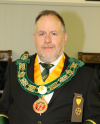
Matt DA Fletcher is the Sovereign Grand Master of the Allied Masonic Degrees of Canada; the Director-General of Studies of the Societas Rosicruciana in Anglia as well as Chief Adept for the SRIA Province of British Columbia & Yukon; is a past Grand Superintendent of the Supreme Grand Chapter of Royal Arch Masons of British Columbia & Yukon; and is or has been a member of almost every regular masonic body in current existence.
Initiated into the Three Pillars Lodge No.4923 in London, and a mason for almost 30 years, he is a subscribing member of bodies in the UK, Canada, the US, Brazil, Belgium & France. He also holds senior positions in a number of Martinist orders and bodies, and is deeply involved in the esoteric avenues beyond regular Freemasonry.
His primary objective is to increase the academic content within Freemasonry, such that we can practically expand and apply the knowledge that we learn in the Craft, and engage with and assist our Brethren more fully on their own personal masonic journey.
In the mundane world, he is a practising orthopaedic surgeon in rural Canada with a strong background in surgical research, and has published and presented over 350 academic and esoteric papers, chapters, and books.
Recent Articles: membership
 A Rose by any other Name may not be the same Explore the profound distinctions between conferred and transmitted Masonic degrees with Bro. Scott Wisdahl. Delve into how presentation quality, personal impact, and setting shape these rituals, and consider the potential for digital adaptations in modern Masonic practices. Join the discussion on enhancing the Masonic journey and preserving its essence. |
 Progression through the Degrees; a Rite or a Privilege? Exploring the layered journey of Freemasonry, Matt DA Fletcher probes the essence of progression—whether it's a mere rite or a privileged path. Delve into a nuanced perspective where every degree is not just a milestone but a fraction of a grander continuum. |
 Quantity vs Quality within the world of Freemasonry Dive into the compelling debate of quantity vs quality within the world of Freemasonry. Discover the transformative focus on attracting members aligned with the institution's values, promising not only growth but quality growth. High-value individuals assure sustainable development with their commitment to serving the brotherhood. |
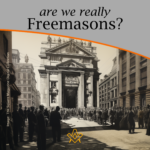 Maybe Freemasonry has opened its doors too wide. Perhaps some have not understood that the survival of Freemasonry in order to achieve its sublime purpose lies not in the number of members it has, but in their quality. Maybe we need less members and more Freemasons. Less men in Freemasonry and more Freemasonry in men. |
 What is ritual and why is it important? P1 Delve into the profound world of Freemasonry rituals and their significance. This insightful piece unravels the underlying importance of rituals, their impact on participants, and the transformative power they hold. Uncover why these centuries-old traditions remain integral to Masonic practice today. |
 Could Freemasonry be helpful for young men? Unravel the Masonic Brotherhood: Could Freemasonry be the antidote to modernity's challenges for young men? Dive in as we explore the Masonic world, its principles, camaraderie, and how its traditional rituals could help forge stronger identities in an increasingly complex world. |
 Discover the remarkable benefits of Lodge Meetings on your well-being. From fostering connections to combating stress, learn how these male-oriented gatherings offer an antidote to anger, hunger, isolation, and exhaustion. Dive into the power of shared experiences, understanding, and camaraderie. Your key to improved mental health awaits inside. |
 Tutorial for a Worshipful Master Unlock the Secrets to Leadership Mastery in our Worshipful Master's Tutorial! Brother Antonio Biella shares step-by-step guidance for Masonic Lodge leaders on honing their roles, duties, and future vision. Discover how to drive growth and engagement in your Lodge, setting ambitious goals and inspiring member participation. |
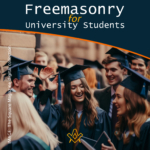 Freemasonry for University Students What are social skillset challenges facing students when they graduate from university ? |
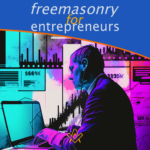 How the Core Values of Freemasonry; Brotherly Love, Relief and Truth Can Be Applied to Improve Productivity For Entrepreneurs |
 Why I became a Freemason: a personal journey of self-improvement Salik Tariq shares his reasons for becoming a Freemason – a journey of self-improvement, finding a community, and personal growth. |
 Freemasonry: Coming out of the Cloisters This paper examines the fundamental tensions on the lines of religion, gender and political ideology that exist in some jurisdictions of Freemasonry. It is on the first of these, religion, on which he makes an initial and exploratory focus. - by Gerald Reilly |
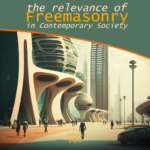 The Relevance of Freemasonry in Contemporary Society The role of Freemasonry in contemporary society is an indispensable one. Despite the challenges and misconceptions it faces, the organization remains steadfast in its humanitarian pursuits and commitment to personal growth and self-betterment. Through its efforts to evolve and adapt to the changing needs of its members and the world, Freemasonry continues to be a vital force in shaping a better future for all. |
 Has Freemasonry managed to revive and thrive after the darkness of the Pandemic? Robert Lomas gives us some (promising) insights. |
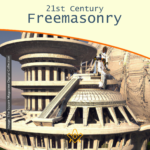 21st Century Freemasonry – a Sign of the Times? A recent article in The Times of London highlighted the dilemma 21st Freemasonry is facing. In this article one Master Mason shares his views of the strengths, and the challenges of modern Masonry. |
 A concept that is both based on our Freemasonic rituals and what we understand as teamwork. This article by Chris Batty examines why teamwork in the lodge is the network that binds us. |
 Lebanese Freemasonry has been both witness to and sometimes participants in turbulent events and forces, which shaped and influenced their world. |
 Is a Masonic Tradition Necessary? Dealing with Masonic tradition is a complex subject that requires careful analysis in order to reach a balanced point on the best etymological definition and the set of discourses and practices, which often end up being presented as such, without, however, presenting bases that support them, often serving only as a discourse that restricts and controls the masses. Fernando Rodrigues de Souza debates this complex subject. |
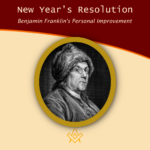 New Year's Resolution with Benjamin Franklin's Personal Improvement Are you ready for a new year's resolution challenge ? To accomplish his life’s goals, at 25 ( around 290 years ago ), Benjamin Franklin developed and committed himself to a personal improvement program that consisted of 13 virtues. You are invited to join me in practicing his daily routine for 2023. |
 The Alberta Masonic Higher Education Bursary Fund is to help the next generation of Albertans, our children and grandchildren, to obtain the education they need to lead successful lives and contribute to the welfare of mankind. As you can see from this little lesson of our history, education is truly a Masonic obligation. |
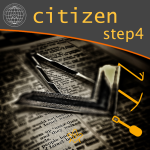 To be a Better Citizen of the World: Step 4 A value proposition for Pure Ancient Masonry as defined in terms of Citizenship; the allegories, symbolism and lessons are a blueprint for all Freemasons to be a better citizen of the world. |
 To be a Better Citizen of the World; Step 3 A value proposition for Pure Ancient Masonry as defined in terms of Citizenship; the allegories, symbolism and lessons are a blueprint for all Freemasons to be a better citizen of the world. |
 In connection with recent article about Freemasonry in the metaverse, we look at how an Egregore applies to Freemasonry in a digital world |
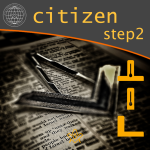 To be a Better Citizen of the World; Step 2 A value proposition for Pure Ancient Masonry as defined in terms of Citizenship; the allegories, symbolism and lessons are a blueprint for all Freemasons to be a better citizen of the world. |
 There are many brotherhoods in the world, and Freemasonry is one of the most significant and successful of them all. This article will be the focus two questions: the importance of brotherhood ? and is there room for improvement in Freemasonry? |
 Intergenerational relations in Masonry: challenges and possibilities Backed with scientific research, Professor Luiz Neto and Professor Alexandre Braune investigate the Intergenerational relations in Freemasonry and explores the challenges and opportunities. |
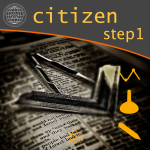 To be a Better Citizen of the World; Step 1 A value proposition for Pure Ancient Masonry as defined in terms of Citizenship; the allegories, symbolism and lessons are a blueprint for all Freemasons to be a better citizen of the world. |
 The Masonic Temple is a platform where both Freemasons and non-Masons, enthusiasts of real art and spiritual growth, connect to the new world of the metaverse. A Freemasonry in the metaverse project, based regular freemasonry principles. |
 Opportunity to fix the Sussex fudge Is there a value proposition for members, that under English Constitution Freemasonry, we have a 4 part offering; Entered Apprentice, Fellowcraft , Master Mason and Companion, conducted in a single craft lodge ? |
 Value Proposition of Freemasonry In addressing declining lodge membership and lack of attendance, we need to assess the value it offers to members. What is value, and what does it mean to you? |
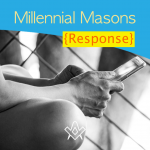 What is a 'Millennial' and what do they want from Freemasonry? You'll be surprised at the answers. |
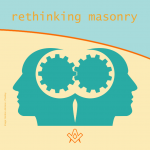 Let us help answer a fundamental question, from a confused newly raised brother asking “What does it all mean and where do I go from here?” |
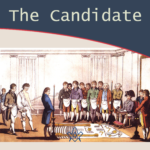 Written in 1930, much of the advice is still relevant today - although some may provoke further thought or debate! |
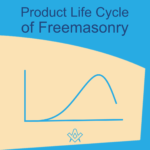 Product Life Cycle of Freemasonry An inconvenient truth about the product life cycle of Freemasonry |
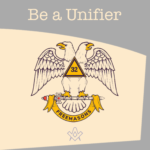 Freemasonry is local. This is where we need to start. We start with our Facebook friends, our neighbours, our colleagues, our lodges… |
 Freemasonry in the time of pandemic The Rule of Six. Localised lockdowns. Second wave? What do we do now?! The answer is simple - engage with members, promote Masonic education and get thinking outside the lodge. |
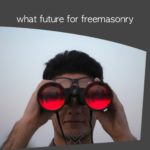 The current functioning of the Masonic movement has some positive aspects and others that are blatantly backward and counterproductive. |
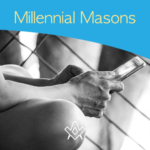 What is a 'Millennial' and what do they want from Freemasonry? You'll be surprised at the answers. |
 How to improve your Lodge Membership Marketing Program. |
 The Anti-Social Impact of Social Media The 'dark side' of social media and its negative effect on our mental health |
 If Freemasonry cannot meet, is this an opportunity to make a change to how we do things? |
 Has your lodge accepted an unknown candidate from the internet? Third in a three-part series looking at the process to accepting candidates via the internet |
 Is the brother of a brother a brother ? Rights to visit - recognition and regularity re-evaluated. |
 The second article in the Unknown Candidate series - Outlining the social media marketing process to attract the unknown candidate to make that first enquiry |
 Ask a random Freemason the purpose of Freemasonry and the likely response will be to “make good men, better”. Research undertaken by James Justin Davis Pennsylvania Academy of Masonic Knowledge. |
 Has your lodge accepted an unknown candidate from the internet? First in a three-part series looking at the process to accepting candidates via the internet |
 Mental Health - Raising its awareness and how we as Freemasons throughout the entire UK can help our fellow brethren and their families when they need it. |
 Share one thought why freemasonry is relevant today - Open question posted on Facebook with a very wide range of responses from Brethren across the globe |
 The Tipping Point of Freemasonry Why do brothers lose interest in Freemasonry and what can we do to get that spark back? At what moment did our own thoughts begin to waver? |
masonic knowledge
to be a better citizen of the world
share the square with two brothers

click image to open email app on mobile device






